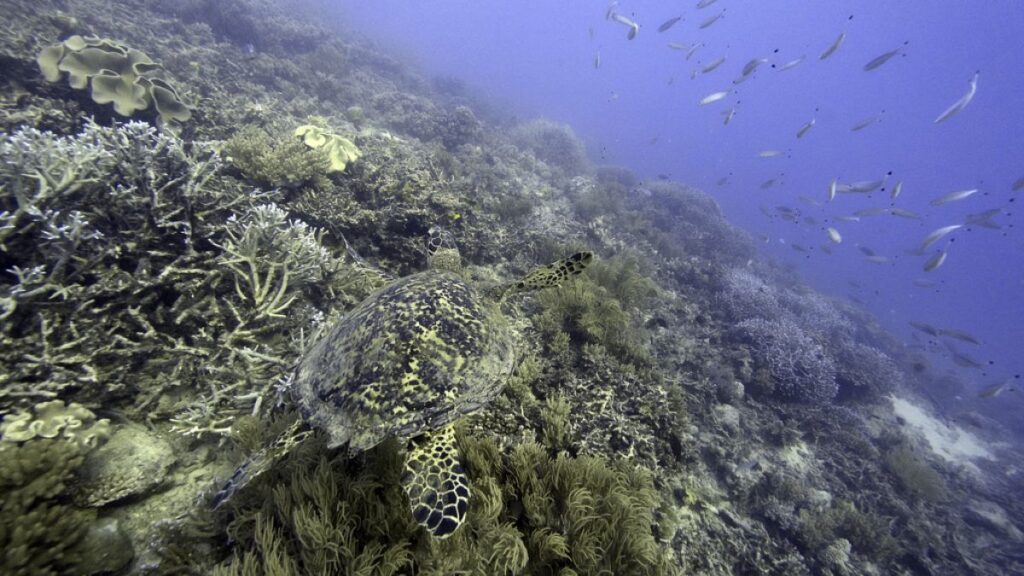Three European non-governmental organisations (NGOs) commissioned an Ipsos survey in Belgium, Poland and Italy to promote debate on the risks of deep-sea mining.
Environmentalists are concerned about ongoing negotiations over the rules that will govern the future commercial exploitation of minerals and metals in deep waters in international waters.
Since July 15, International Seabed Authority (ISA) – an organization created within the United Nations in 1994 – is holding discussions in Jamaica.
That is why three European NGOs (WeMove Europe, Seas At Risk and Deep Sea Conservation Coalition) commissioned an Ipsos survey, conducted in Belgium, Poland and Italy, with a sample of 3,000 people.
According to the results, 56% of respondents oppose deep-sea mining and support a temporary ban on the new industry. Meanwhile, 33% approve of mining if damage is limited, 7% have no opinion, and only 4% support mining without reserves.
“Scientists warn we need more time to better understand the ocean floor“, explains Rachel Walker-Konno, campaigner at WeMove Europe, in an interview with Euronews.
“Last week, a discovery was made about polymetallic nodules – the rocks that contain the minerals that mining companies are looking to extract – that revealed that they produce oxygen. This completely changed what we knew about how oxygen is produced, because it happens in the deep sea, without sunlight.” she adds.
Ban or suspension?
Scientists stress the need to know more about the possible effects on ecosystems, fish populations and the oceans’ ability to capture and store carbon dioxide.
To date, only 31 countries in the world are in favor of a ban, a moratorium or a preventive pause, including 10 are members of the European UnionFrance is the only member state calling for a ban. Denmark, Sweden, Finland, Germany, Portugal, Spain, Ireland, Greece and Malta are calling for a pause while more data is collected.
There European Commission advocated two years ago, in a “Joint Communication on the EU Agenda for International Ocean Governance”, a ban until it is proven that mining can be done safely.
The document states that mining should only take place when “scientific gaps are adequately filled“and that it is certain that”no adverse effects will occur” and “the marine environment will be effectively protected“.
Over the past year, dozens of international financial institutions and companies from the fisheries, technology and auto industries have joined scientists and indigenous groups in calling for a halt to deep-sea mining.
Would these metals be useful?
Since the 1960s, ISA has signed about thirty contracts for the exploration of polymetallic nodules, polymetallic sulfides and cobalt-rich ferromanganese crusts in the seabed. These nodules contain copper, nickel, iron, manganese, cobalt and rare earths.
These contracts aim to explore the commercial potential of these resources, involving government and private entities. The prospecting areas are the Clarion-Clipperton Fracture Zone, in the Central Indian Ocean Basin, in the Western Pacific Ocean, in the Southwest and Central Indian Ridges and in the Mid-Atlantic Ridge.
Several EU countries are concerned, namely Germany, France, Belgium, Italy, Poland and the Czech Republic. Some governments are keen to obtain new sources of minerals used, for example, in electric batteries and semiconductorsBut NGOs say it may not be worth choosing this path.
“From deep-sea mining, we mainly obtain polymetallic nodules that contain manganese, some nickel, cobalt and copper. Many of these minerals are replaced in current clean technologies and some extremely necessary minerals, such as lithium, are not found in these nodules.“, specifies Rachel Walker-Konno.
Canada and Norway move forward
But Canada (under the aegis of the TMC company) could request from 2025 a commercial operating license in international waters, in the Clarion-Clipperton Zone (CCZ) – a vast region between Hawaii and Mexico. It remains to be seen whether, by then, the International Seabed Authority will have made a decision on the legal framework to be put in place.
The election, on Friday, of Secretary General of the ISA is a decisive element in determining the direction this organisation will take. The current Deputy Secretary General, Michael Lodge (United Kingdom), is running with a very pro-industry position, advocating rapid adoption of the rules.
Letícia Carvalho, a Brazilian oceanographer and former oil and gas regulator, advocates more precautions and says studies should continue for a few more years.
The United Nations Convention on the Law of the Sea (UNCLOS) declared in 1982 that the seabed beyond national jurisdiction is the “common heritage of humanity“and that any use must benefit the”overall development of all countries“.
Norway has announced plans to launch commercial activity in its territorial waters soon. In a vote in the national parliament on January 9the green light has been given to deep-sea mining in a 281,000 square kilometre area around the Arctic archipelago of Svalbard.


